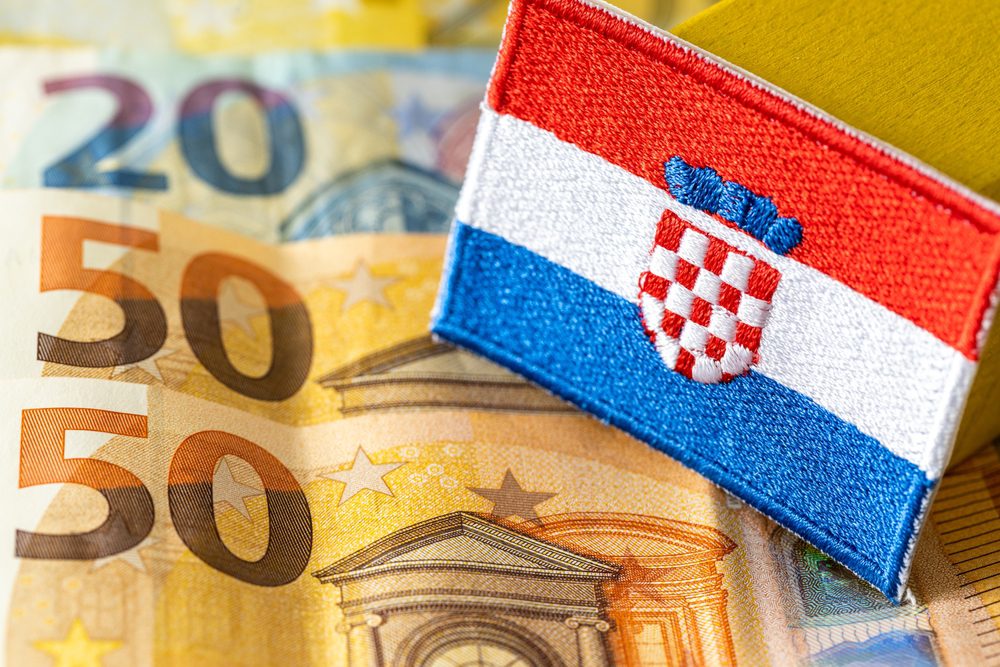
On January 1st, Croatia officially adopted the euro, thereby becoming the currency bloc’s 20th member. Simultaneously, the country becomes part of Europe’s passport-free Schengen zone.
The Balkan nation of some four million people (and an EU member state since 2013) is discontinuing its kuna currency. New Croatian-designed coins will now be coming into circulation throughout the euro zone. The new 50-, 20-, and 10-cent coins, for instance, will be displaying famed inventor Nikola Tesla, who was born in 1856 in the Croatian village of Smiljan—a territory which, in his time, was part of the Austrian Empire.
While some experts say the adoption of the euro will help protect Croatia’s economy at a time when global inflation is soaring, others note that it comes at a particularly bad time: last July, for the first time in two decades, the euro slid to parity with the U.S. dollar. Since that time, it has remained weak, while a winter recession is now becoming a practical certainty for the euro zone.
Some, primarily nationalist opposition parties, have voiced worries about the currency switch, saying it only benefits large countries like Germany and France.
Croatian Finance Minister Marko Primorac, who has maintained Croatia’s year-long fiscally conservative policy, proved more optimistic. “We are certain that the interest rates and the borrowing costs in general will increase in due time,” he told Politico in an interview. “However, we are certain that the increase for Croatia would be much lower than if we didn’t join the euro zone.”
Croatia will also be the 27th nation in the passport-free Schengen zone. Enabling more than 400 million people to move freely around its member nations without the need to show identification, it is the largest passport-free zone in the world. Third-country nationals, however, will need to meet the same identification checks, documentation procedures, and visa regulations currently in place in the Schengen zone.
This includes Croatia’s shared border with Hungary. While the Mur river separates the two countries along much of the border region, Hungary’s temporary border barrier—erected in 2015 to soften the impact of the migration crisis—must now be removed. One obvious concern is that this will make it easier for criminals to travel between the two countries.
Various other Croatian officials have defended joining the euro zone as well as Schengen. On Wednesday, December 28th, Croatia’s Prime Minister Andrej Plenković tweeted that representatives for the Croatian National Bank, other banks, and financial institutions had informed them that everything was in place ahead of Croatia’s accession to the euro zone. Plenković stated that through this, its citizens “will be better protected against crises.”
Na sjednici Nacionalnog vijeća za euro predstavnici HNB-a, banaka i financijskih institucija informirali su nas o spremnosti sustava uoči #Eurozone. Najvažnije je da prelazak na € prođe sigurno i bez poteškoća za građane, koji će ulaskom u #Eurozone biti zaštićeniji od kriza! pic.twitter.com/faYEP14ZdR
— Andrej Plenković (@AndrejPlenkovic) December 28, 2022
Being part of the Schengen zone, he wrote in a later tweet, would allow “easier travel and faster transport of goods and services,” which “bring great advantages to our fellow citizens and businessmen.”
Održali smo sastanak Radne skupine za #Schengen ususret pristupanja 1. siječnja. Jednostavnija putovanja i brže kretanje roba i usluga donose velike prednosti za naše sugrađane i gospodarstvenike. Zahvaljujem svim resorima koji su predano radili na ispunjenju svih kriterija! pic.twitter.com/80AU3Zv0M0
— Andrej Plenković (@AndrejPlenkovic) December 28, 2022
Croatia, the latest country to join the EU bloc, has now become the euro zone’s first new member since all three Baltic nations (Estonia, Latvia, and Lithuania) made their national currencies redundant in 2011, 2014, and 2015 respectively.
